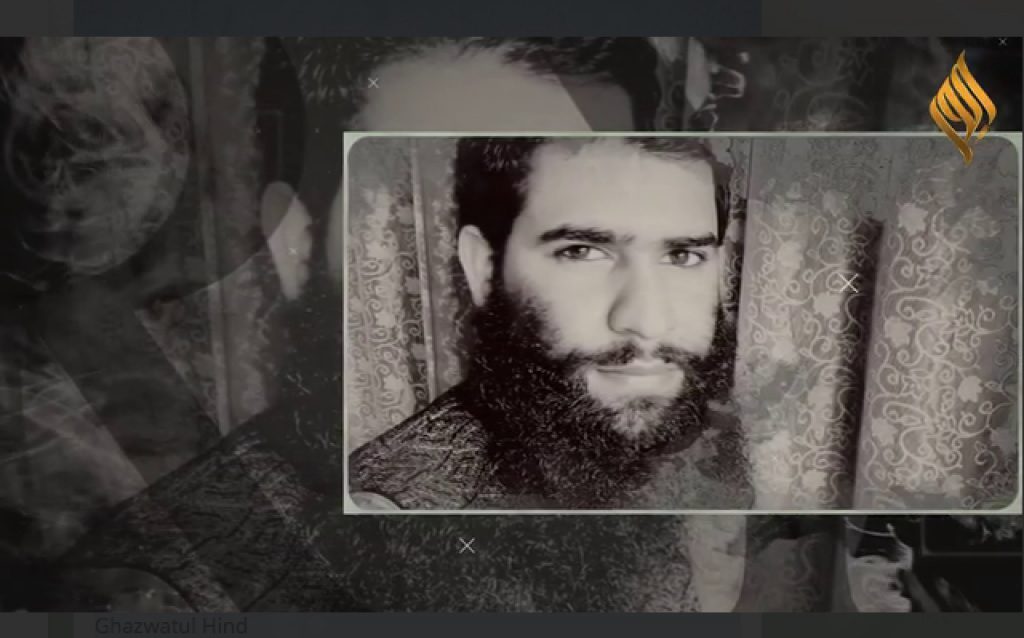Qatar exploiting UN loopholes to facilitate terror financing
Dubai: Blacklisted terrorists from Al Qaida and Daesh have been able to tap into their bank accounts despite a UN asset freeze, according to documents reviewed by the Wall Street Journal.
Dubai: Blacklisted terrorists from Al Qaida and Daesh have been able to tap into their bank accounts despite a UN asset freeze, according to documents reviewed by the Wall Street Journal.

An air strike hit Tel al-Hara in Syria on June 12. The mountain contained an observation area for the Syrian regime and its allies, including groups linked to Iran.

As the Assad regime claws territory back across Syria from rebel and Islamist forces, it has had to mortgage its monopoly over the use of force to paramilitary groups to overcome its openly acknowledged manpower shortages. It has occasionally called on these militias to augment the army’s fighting capacity, but more often than not it has directed them to protect, and in some cases even police, areas away from the frontlines. This has been particularly true in Tartous and Latakia. In recent months, the loyalist militias tasked with providing security in these coastal areas, some connected directly to the president’s family, have challenged the regime’s primacy, prompting external intervention. The growing power of these groups and the response of Bashar al-Assad’s foreign backers illustrates how local skirmishes over smuggling routes can have much broader geopolitical implications as Russia gains ground at the expense of both the regime and Iran.

The U.S. and Iran are locked in conflict. Regardless of the details or culpability regarding the latest attack on two tankers in the Gulf, the conflict is centered on Washington’s “maximum pressure” campaign and Tehran’s response that it will not sit idly by while its economy is brought to its knees. Instead, Tehran has communicated that it will inflict a heavy toll on U.S. partners in the region, especially Saudi Arabia and the UAE, and that if it can’t export its oil, other countries won’t be allowed to export theirs either. This conflict system is likely to endure, at least until the U.S. elections in November of next year, as the Trump administration is unlikely to lift sanctions and Iran will not quietly accept its fate. Among the many questions is what shape this conflict might take in the weeks and months ahead. Below, I sketch out five possibilities.

Al Qaeda has reacted to the death of Zakir Musa, a young jihadist commander killed by Indian forces on May 23, by releasing a glowing eulogy and a video promoting the group’s efforts in Kashmir. Musa led Ansar Ghazwat-ul-Hind (AGH), an al-Qaeda linked outfit that was established in 2017.

La Libye, l’Irak, le Yémen, la Syrie et la Somalie figurent parmi les 10 pays les moins pacifiques au monde, selon l’édition 2019 du Global Peace Index. Si la tendance est à la diminution générale des conflits, la zone Afrique du Nord-Moyen-Orient (MENA) demeure celle où la paix est la moins garantie.

Lebanon says it fully supports the Palestinians in their fight against Israel — but would like to see them leave the country as soon as possible.
This is the modern-day version of Arab “solidarity” with their Palestinian brothers: discrimination and apartheid — no jobs, no citizenship, no health care and no social services.

Sometime in June the UN Security Council will vote to approve another six-month renewal of the mandate of the 1000-strong UN Disengagement Observer Force (UNDOF) deployed in the Golan Heights.

Yemen’s Houthi movement recently announced that it began a fundraising drive to procure funds for Lebanese Hezbollah. The fundraising campaign comes after the US levied new sanctions against the Lebanese group last month.
New Series Will Build Upon Extremism Spotlight Series
Earlier this year, the Counter Extremism Project (CEP) highlighted the online presence of dangerous extremist propagandists known to law enforcement and intelligence communities as well as notorious extremist content with links to violence in its Extremism Spotlight series. Continuing to allow this material to remain online to radicalize followers and incite violence is inexplicable, especially in light of Google-owned YouTube’s decision in November 2017 to remove notorious al-Qaeda propagandist Anwar al-Awlaki from its platform in a “watershed moment.”